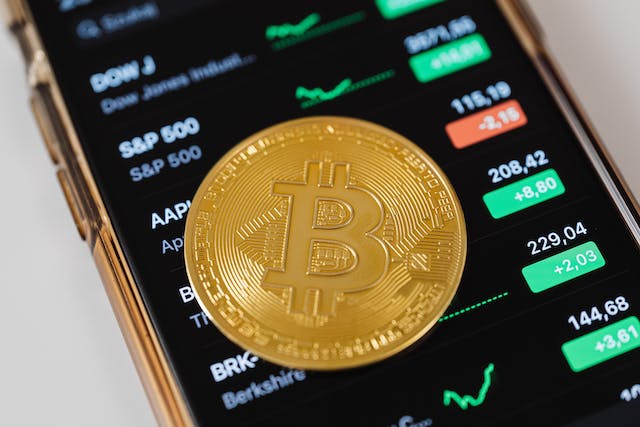In the fast-paced world of cryptocurrency, the need for secure storage solutions for digital assets like Bitcoin has become paramount. As more people join the crypto community, the importance of safeguarding one’s holdings cannot be understated.

Fortunately, there are various types of wallets available to store Bitcoin safely. In this guide, we will explore the different options and shed light on the best practices for securing your precious coins. If you are planning to invest in Bitcoin, you may consider knowing about the BITCOIN STAMPS.
The Importance of Secure Bitcoin Storage
Before delving into the various wallet options, it’s essential to emphasize the significance of secure Bitcoin storage. As the popularity of cryptocurrencies grew, so did the threats from cybercriminals seeking to exploit vulnerabilities and loopholes in users’ defenses. Recognizing the importance of robust security measures, reputable online trading platforms have taken the lead in prioritizing the safety of their users’ funds.
Hardware Wallets: Fortresses for Your Bitcoin
Among the most secure options available, hardware wallets are physical devices designed to store your Bitcoin offline. They offer an extra layer of protection by keeping your private keys isolated from internet-connected devices, minimizing the risk of online hacks. By choosing a hardware wallet, such as those offered by Ledger or Trezor, users can have peace of mind knowing their assets are safe from cyber threats.
Paper Wallets: Back to Basics
For those who prefer a low-tech solution, paper wallets provide an excellent option. A paper wallet entails printing your private keys and Bitcoin address on a piece of paper. It ensures that your sensitive information is never stored online. However, users must be cautious while generating paper wallets to avoid potential risks, such as using untrustworthy websites or printers.
Online Wallets: Convenience vs. Security
Online wallets, also known as web wallets, are accessible through internet browsers or mobile apps, making them incredibly convenient for everyday transactions. However, they come with inherent risks, as the private keys are stored on third-party servers. While reputable platforms implement stringent security measures, users must remain vigilant about potential phishing attacks and security breaches.
Desktop Wallets: Striking a Balance
Desktop wallets are applications that users can download and install on their computers. They offer a balance between security and convenience, as they provide control over private keys without needing to rely on an external service. However, users should ensure their devices are well-protected from malware and viruses to maintain the wallet’s integrity.
Mobile Wallets: Bitcoin on the Go
Mobile wallets cater to users who seek easy accessibility to their Bitcoin holdings on their smartphones. They are practical for everyday use and allow users to make transactions on the fly. However, similar to desktop wallets, users must prioritize their device’s security and consider backup options to avoid potential data loss.
Multi-Signature Wallets: Collaborative Security
Multi-signature wallets, often referred to as multisig wallets, require multiple private keys to authorize transactions. This shared responsibility enhances security by reducing the risk of a single point of failure. It is particularly beneficial for businesses and shared accounts where multiple parties are involved.
Brain Wallets: The Power of Memory
Brain wallets rely on users’ ability to remember complex passphrases or seeds instead of storing them physically. While it eliminates the risk of losing a physical wallet, the reliance on human memory can be a double-edged sword. If the passphrase is forgotten or weak, it could lead to irreversible loss.
Hardware Security Modules (HSMs): Enterprise-Grade Protection
Primarily used by institutions and businesses, Hardware Security Modules (HSMs) offer top-tier security for Bitcoin storage. These specialized devices generate and store private keys securely and require multiple authentication layers for access. While suitable for enterprises, they may not be practical for individual users due to their high cost and complexity.
Conclusion
In conclusion, the safety of your Bitcoin holdings should be of utmost importance. By selecting a secure wallet that aligns with your needs and risk tolerance, you can protect your digital assets from potential threats. Whether you opt for a hardware wallet like Ledger or Trezor, or leverage the convenience of online wallets, understanding the trade-offs between security and usability is vital. Stay informed, follow best practices, and be proactive in safeguarding your Bitcoin to make the most of your crypto journey.